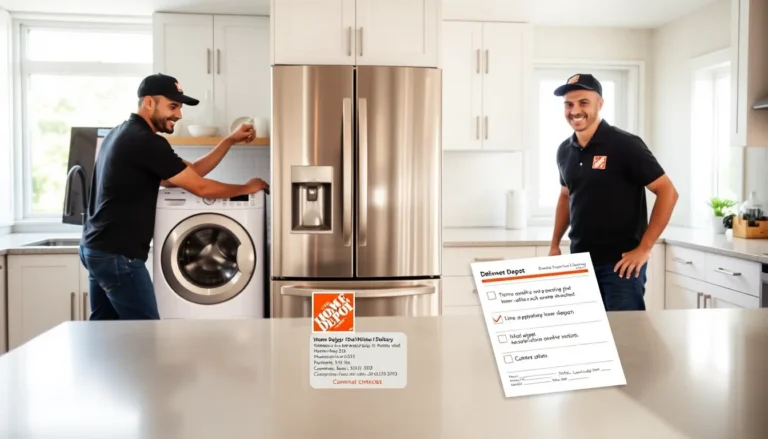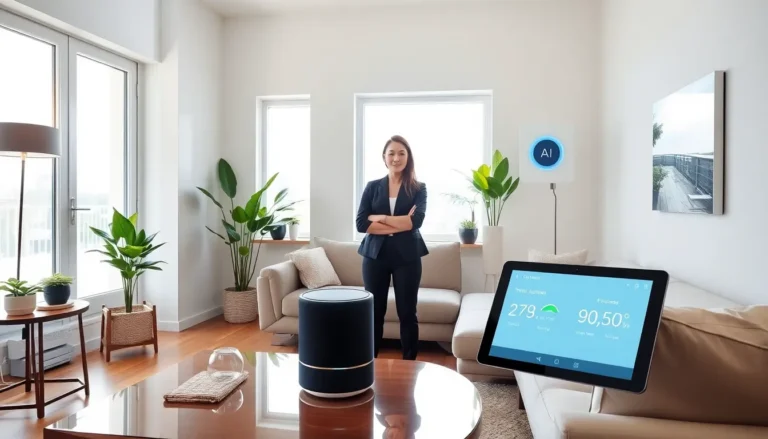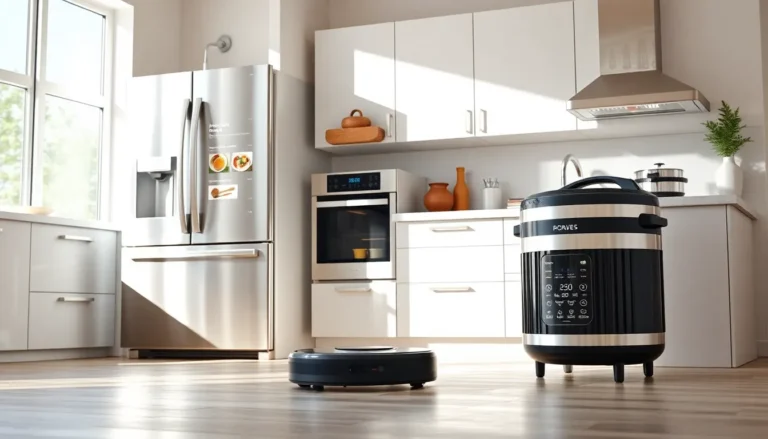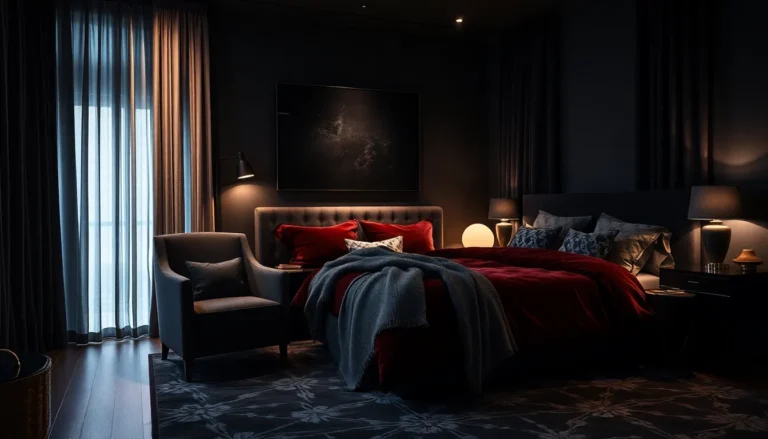Imagine a world where your windows could go from clear to obscure with just the touch of a button. Sounds like something straight out of a sci-fi movie, right? Well, welcome to reality. Smart glass is revolutionizing the way homes interact with light, privacy, and energy efficiency. With options that respond to your needs, smart glass can transform your living spaces into high-tech havens. Buckle up as we explore this fascinating innovation that’s both practical and a little futuristic.
Table of Contents
ToggleWhat Is Smart Glass?
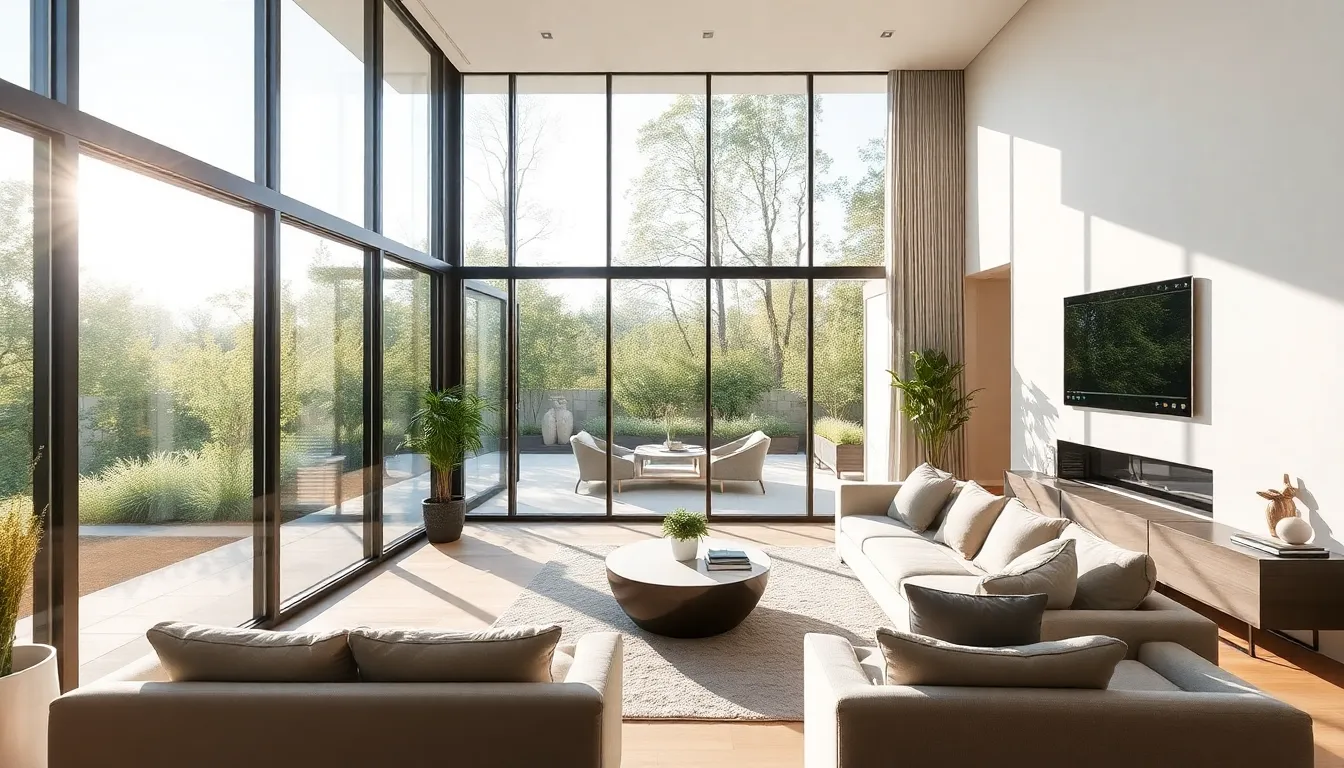
Smart glass, also known as switchable glass, refers to a type of glazing that changes its properties based on external stimuli or user preferences. This can involve altering its tint, transparency, or even insulating capabilities. At its core, smart glass utilizes technologies that respond to electrical or thermal stimuli, enabling homeowners to control light, heat, and glare with ease. It’s like having a dimmer switch for your windows.
The most common forms of smart glass include electrochromic, thermochromic, and photochromic variations. Each type serves different purposes and offers unique advantages, making smart glass an intriguing option for many households.
By integrating these cutting-edge materials into home designs, residents can enjoy personalized environments that suit their varying needs throughout the day.
Types of Smart Glass Technologies
The world of smart glass is as diverse as it is innovative. Here are some key types of smart glass technologies to consider:
Electrochromic Glass
This technology allows users to adjust the tint of their windows using a small electrical current. A simple push of a button can transform a bright room into a cozy retreat, reducing glare and heat.
Photochromic Glass
Unlike electrochromic glass, photochromic glass reacts automatically to sunlight. It darkens when exposed to UV rays and returns to its clear state when the sun sets. This is particularly handy for keeping interiors cool during hot summer months.
Thermochromic Glass
Thermochromic glass changes color based on temperature changes. On hot days, this glass may shift to a darker hue to reflect heat, helping maintain optimal indoor conditions without relying solely on air conditioning.
Liquid Crystal Glass
This advanced form of smart glass can switch from opaque to transparent. Often used for privacy, liquid crystal glass is perfect for bathrooms or office spaces, instantly offering a veil of privacy when needed.
Benefits of Smart Glass in Residential Settings
Smart glass is not just a stylish addition to any home: it brings several tangible benefits.
Energy Efficiency
By minimizing reliance on artificial lighting and improving thermal management, smart glass can lead to a significant reduction in energy costs. Homeowners can enjoy natural daylight without the excessive heat, making air conditioning less necessary.
Enhanced Privacy
The ability to instantly adjust the transparency of windows offers unparalleled privacy control. Homeowners can ensure that their living spaces remain secluded without sacrificing natural light.
Noise Reduction
Some types of smart glass can help reduce outside noise, creating a more peaceful home environment. This is particularly beneficial for homes in busy areas or near highways.
Aesthetic Appeal
Smart glass can complement contemporary architecture beautifully. Its sleek, modern look can enhance a home’s overall design, leaving both guests and residents in awe.
Applications of Smart Glass in Homes
Smart glass isn’t just for windows, it has numerous applications throughout a home. Here are some inspiring ideas:
Living Rooms
Consider installing electrochromic glass for an entertainment area that adjusts for movie nights or gatherings. It can eliminate glare from screens, allowing for enjoyable viewing experiences.
Bathrooms
Liquid crystal glass in showers can provide instant privacy while still allowing light to flow through, a perfect blend of beauty and function.
Home Offices
Working from home is here to stay, and smart glass can enhance focus by controlling light levels and privacy. Whether using electrochromic or liquid crystal glass, professionals can create an ideal setting for productivity.
Patios and Outdoor Spaces
Imagine enjoying your outside view with the flick of a switch while still having control over heat and light, smart glass can make patios more comfortable year-round.
Considerations When Installing Smart Glass
While smart glass can elevate a home, there are several factors homeowners should consider before installation:
Initial Cost
The upfront expense of smart glass can be significant. It’s essential to weigh this investment against the long-term savings in energy costs and increased property value.
Installation Complexity
Installing smart glass may require professional help, adding additional costs and complexity. Engaging with an experienced contractor can help ensure a successful installation.
Maintenance Requirements
While smart glass is generally low-maintenance, specific types may require specialized cleaning products or methods. Homeowners should understand these needs to keep their glass functioning optimally.
Future Trends in Smart Glass Technology
Looking ahead, emerging trends in smart glass technology promise to make homes even smarter.
Bio-Responsive Glass
Imagine windows that can react not just to light or temperature but also to internal and external environmental changes. Bio-responsive smart glass is being developed, potentially offering even greater adaptability and energy savings.
Integration with Home Automation
As smart homes become more common, the integration of smart glass with home automation systems is inevitable. Future developments could allow windows to sync seamlessly with climate control, lighting, and security systems, creating a holistic living environment.
Increased Affordability
As manufacturing processes advance, the cost of smart glass is expected to decrease, making it accessible for a broader range of homeowners. This democratization of technology would allow more people to enjoy the benefits of smart glass living.


